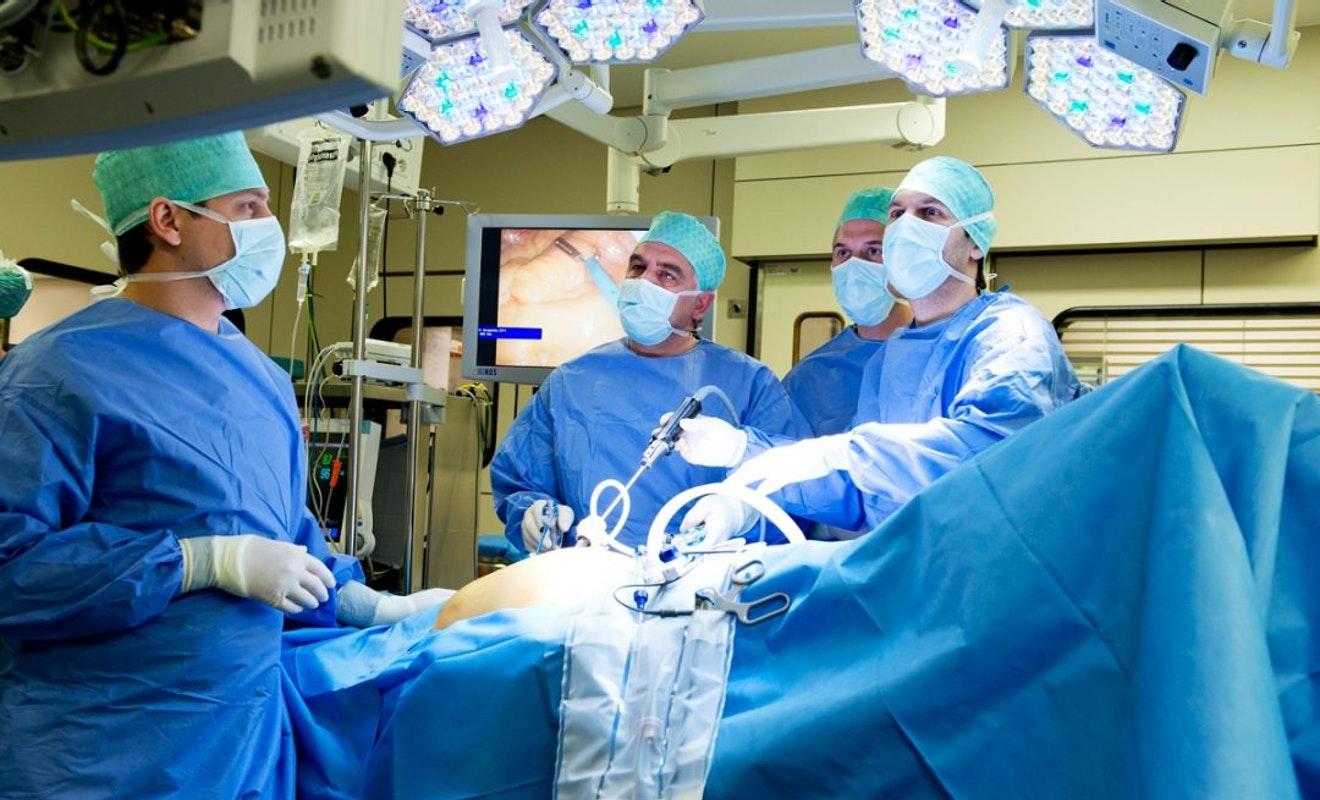More than 50 Flemish hospitals reported their mortality and survival figures for all patients with rectal cancer treated between 2015 and 2017. In comparison to the previous report of four years ago, the resultt after rectal cancer treatment continue to improve. There are however big differences between the different Flemish hospitals. Annually UZ Leuven treats the largest number of patients and is at the same time able to present the best survival rates.
Chances of survival continue to increase
For patients undergoing a surgical treatment at UZ Leuven, mortality rates within 30 days post-surgery came down from 0.7% to 0.4%. The 90-day mortality came down even more, from 1% to 0.4%. With this, UZ Leuven does significantly better than the Flemish average.
Prof. dr. André D’Hoore, head of the abdominal surgery department at UZ Leuven: “The last couple of years the mortality risk of all UZ Leuven patients undergoing surgery has dropped significantly. And this despite the fact that our patients are much older, and also suffer from other diseases such as diabetes and cardiovascular disorders.”
The survival rates five years after the rectal cancer diagnosis are also 10% better at UZ Leuven than the average of all Flemish hospitals. For patients that underwent surgery at UZ Leuve, the chance of survival after three years is 93,6% and after five years 80%.
Need for a volume standard
Because the treatment for rectal cancer is complex and multidisciplinary, hospitals need to follow a sufficient number of patients to create, measure and, if necessary, adjust the quality of care.
Prof. dr. D’Hoore: “It is remarkable to see that more than half of all Flemish hospitals treat so few patients with rectal cancer annually that they can't provide reliable survival rates. This makes quality control difficult. Experts have been recommending a volume standard for some time, requiring each hospital to follow a minimum number of patients annually, as is already the case in several countries. Such a volume standard can for example be imposed by the government or can be agreed within hospital networks.”
The last couple of years the mortality risk of patients undergoing surgery for rectal cancer at UZ Leuven has dropped spectacularly.Prof. dr. André D'Hoore, head of the abdominal surgery department at UZ Leuven
Innovative and multidisciplinary approach
Rectal cancer requires a complex and multidisciplinary treatment. Firstly, the multidisciplinary team determines, via various tests, whether the patient is best helped with immediate surgery or whether chemotherapy and/or radiotherapy is recommended.
Prof. dr. D’Hoore: “The abdominal surgery department has played a pioneering role in developing minimal transanal surgery, as a result of which rectal tumours can be removed in a less invasive manner.”
The surgical procedure may be the most important, but is still only one part of the treatment programme for rectal cancer. Prof. dr. Albert Wolthuis, abdominal and colorectal surgeon: “We can see that post-operative mortality is mostly due to a failure to rescue in case of complications.”
Prof. dr. Eric Van Cutsem, head of the digestive oncology department at UZ Leuven: “For the follow-up after the surgical procedure and most definitely also for setting up the treatment strategy, a strong multidisciplinary team is crucial. Our excellent results are a reflection of the expertise and efforts of the whole team, consisting of doctors, nurses, colostomy nurses, nursing specialists, physiotherapists ...”
The Flemish Institute for Quality of Care (VIKZ) collects all data of the participating hospitals and makes them available on www.zorgkwaliteit.be. There you can find an interpretation and figures can be compared.
